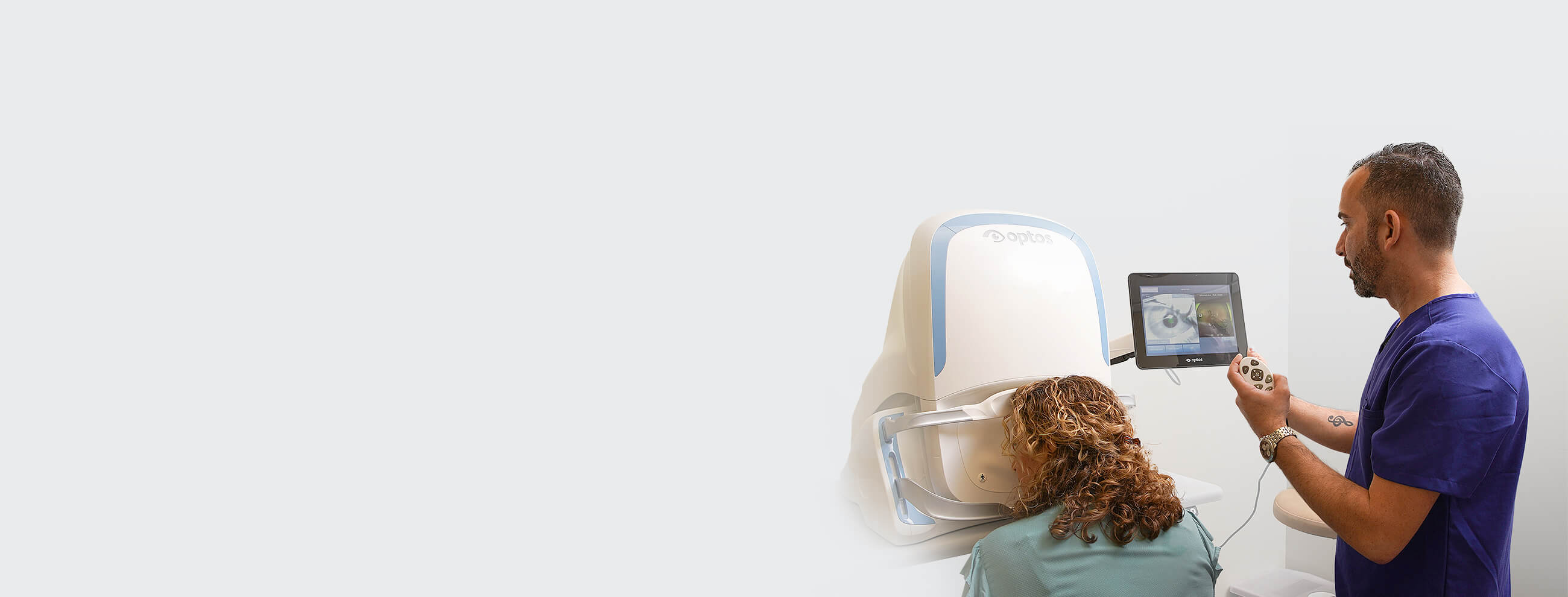Fluorescein and Indocyanine Green (ICG) Angiography
In order to examine the retina and choroid (a layer of blood vessels under the retina), your doctor has recommended one or both of these diagnostic techniques.
What is fluorescein and ICG?
Fluorescein and ICG are both non-radioactive dyes that are injected into a vein in your arm. The dye then travels through the blood stream and enters the blood vessels in your eye. As the dye passes through these vessels in your eye, a special camera takes photographs (not x-rays) of the retinal and choroidal blood vessels. Fluorescein angiography is the best way to examine the retinal blood vessels. ICG is able to evaluate the deeper choroidal blood vessels that are often difficult to visualize with fluorescein alone.
Why do I need angiography?
Angiography helps your doctor see important details of your retina or choroid that may not be detectable by examining your eye alone. It is used to help diagnose and monitor a wide variety of retinal diseases such as macular degeneration, diabetic retinopathy, retinal vein occlusions and cystoid macular edema. It is also used to determine the need for and guide laser surgery as well as monitor the effects of laser surgery.
Are there any side effects?
Side effects are rare and minimal. The most common side effects include:
- Burning sensation at the injection site and slight, temporary discoloration of the skin.
- Your skin may turn a slight yellowish color for several hours
- Your urine may turn dark orange for up to 24 hours
- Occasionally, nausea may occur for a few minutes after injection
- Blurry vision due to the eye drops you received to dilate your pupils, or from the bright flashes from the camera. These effects are not permanent and will generally wear off within several hours.
Rarely, allergic reactions can occur to either of these dyes. They may cause a skin rash, itchy skin, or breathing difficulty. Such reactions are usually treated with oral or injectable anti-histamines (such as Benedryl), depending on the severity of the symptoms. ICG contains iodine, and if you are allergic to iodine or other substances that contain iodine, such as shellfish or x-ray dye, you must inform your doctor.


